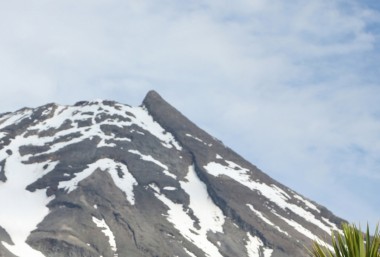Te Pire Haeata ki Parihaka (also known as the Parihaka Reconciliation Bill) passed its second reading on 1 August 2019 and introduces new and unique protection for the name PARIHAKA that will prevent its unauthorised commercial use. Given the unanimous cross-party support for the bill, the bill is expected to pass into law when the third reading date is set down. But what does this legislation propose? And does it go far enough to protect this important piece of our history?
About Parihaka
By the 1860s, fuelled by more and more land confiscations, the New Zealand wars had arrived in Taranaki. The demand for land for new settlers was at an all-time high, and the settlers sought the rich soils found in Taranaki.
Over the 1860s-1870s, a small community formed in South Taranaki under the name Parihaka, led by Tohu Kākahi and Te Whiti ō Rongomai. As the wars spread throughout Taranaki, this community laid down their guns and commenced a phase of non-violent resistance, did not seek revenge, offering an alternative response to the violence and fighting.
The community grew as more and more Māori were forced from their homes and sought solace in this settlement, but also these Māori stood in place of those that began to be arrested by the Crown and imprisoned without trial. As one of the last independent settlements in Taranaki, Parihaka initially withstood continued efforts to displace the settlement.
On 5 November 1881, the Crown’s troops eventually invaded Parihaka, arresting more its people without trial, separating families, destroying homes, livestock, and cultivations.
The atrocities at Parihaka devastated the community, but the community built itself back again and still stands today.
Since the events in 1881, the community of Parihaka has sought recognition and reconciliation from the Crown. Te Kawenata ō Rongo, the deed of reconciliation signed on 9 June 2017 is a document in which the Crown and the Parihaka community agreed to reconcile their relationship. The Te Pire Haeata o Parihaka records aspects of Te Kawenata ō Rongo and seeks to preserve the commitment made by the Crown and Parihaka to a new relationship.
As the atrocities at Parihaka became more well-known, many have sought to mislead and deceive the public by claiming an association with Parihaka or the Parihaka community, misrepresenting or incorrectly sharing the story of Parihaka, often without any approval or input from the Parihaka community.
During the Select Committee process around the bill, submissions from Parihaka Papakāinga Trust and others requested protection for the name PARIHAKA, the names of Te Whiti ō Rongomai and Tohu Kākahi, the history of Parihaka, and the legacy statement for Parihaka.
What protection does the legislation propose?
In response to these submissions, the bill now proposes new and specific protection for the name Parihaka. These protections are summarised below.
- Unless a person has requested written authorisation and received consent from the trustees of the Parihaka Papakāinga Trust, then that person cannot:
-
form or register an incorporated or unincorporated body under any name, title, style, or designation that includes the name Parihaka
-
carry out any trading activities under any name, title, style, or designation that includes the name Parihaka
-
display, exhibit, or otherwise use, in relation to any commercial goods or services, in any business, trade, or occupation, a name, title, style, or designation that includes the name Parihaka.
-
- A person must also request written authorisation to any use of any other name, title, style, or designation that so resembles the name Parihaka as to be likely to mislead, confuse, or deceive a person into believing that there is an association with Parihaka.
- The trustees may also withhold their authorisation if the trustees consider the proposed use would demean the name Parihaka.
- The trustees are empowered to use any relevant statutory process to object to the use of the name Parihaka, give written notice that the use of the name Parihaka is contrary to these provisions and requesting that the use cease, and if necessary, apply to the court for a declaration that the use of the name Parihaka is contrary to these provisions and seeking an order that the person cease the use.
In the interests of protecting artistic and political freedom of expression, the legislation does not prevent any persons from using the name Parihaka:
- for genuine creative, educational, or historical purposes
- if carried out in accordance with honest practices in commercial or industrial matters to indicate the geographic location of the body, business, trade, occupation, product, or service, and the use is in relation to:
- an incorporated or unincorporated body located at or near Parihaka
- a business, trade, or occupation located at or near Parihaka
- goods or services produced or provided at or near Parihaka.
Does the protection go far enough?
The Bill proposes new and unique protections for the name Parihaka, similar but also different to the protections granted to the name TE AWA TUPUA under the Te Awa Tupua (Whanganui River Claim Settlement) Act 2017.
One of the unique factors in this situation is that these protections did not arise directly from a treaty settlement process.
The legislation is also timely given that this year’s national commemoration of Te Pūtake o Te Riri: Wars and Conflicts in New Zealand will be held in Taranaki on 28 October.
The legislation empowers the Parihaka Papakāinga Trust to stop unauthorised commercial use of the name Parihaka, misleading, confusing, and deceptive use of the name Parihaka, and any use that demeans the name Parihaka.
These powers will enable the Parihaka Papakāinga Trust to stop the misuse, misappropriation, and misleading behaviour they have encountered over time, but also establish guidelines for responding to the many requests to use the name Parihaka and tell the history of Parihaka.
The Parihaka Papakāinga Trust has requested broader protection for the names Te Whiti ō Rongomai, Tohu Kākahi, the history and the Legacy Statement of Parihaka.
The government relied on universal human rights (the rights of artistic and political freedom of expression) to subjugate the specific rights of the community of Parihaka. For the same reason, the trustees cannot prevent use of the name Parihaka for genuine creative, educational, or historical purposes or use that is carried out in accordance with honest practices in commercial or industrial matters to indicate the geographic location of the commercial enterprise if the use is in relation to a body, trade, goods or services produced or provided at or near Parihaka.
While the proposed bill introduces new protections that reflect how a community would protect a name such as Parihaka, there is no doubt there is more that could be done to protect important pieces of our history such as the names of Te Whiti ō Rongomai and Tohu Kākahi, the history and the Legacy Statement of Parihaka.
Where to from here?
The Bill will now be referred to the committee of the house, where it awaits a third reading and its passage into our law. This next phase is expected to proceed relatively quickly given the cross party support the bill received at its second reading.
New Zealand laws are clearly evolving and adapting to incorporate aspects of tikanga (Māori protocols/customs), and Te Pire Haeata o Parihaka is another example of this. While there is no doubt that progress is being made to incorporate tikanga into different pieces of legislation, there is still room to extend those protections in favour of protecting important pieces of our history and ensure that our unique Māori heritage is preserved and protected in a way that is consistent with tikanga.
I am reminded of a popular saying that ‘anything that is good for Māori, will be good for New Zealand’, and I encourage Māori to continue to seek these protections to ensure Māori tikanga continues to be reflected in our legal framework.
In the words of Te Whiti ō Rongomai ‘Go, put your hands to the plough. Look not back. If any come with guns, be not afraid. If they smite you, smite not in return. If they rend you, be not discouraged. Another will take up the good work.’ Parihaka 1879.




